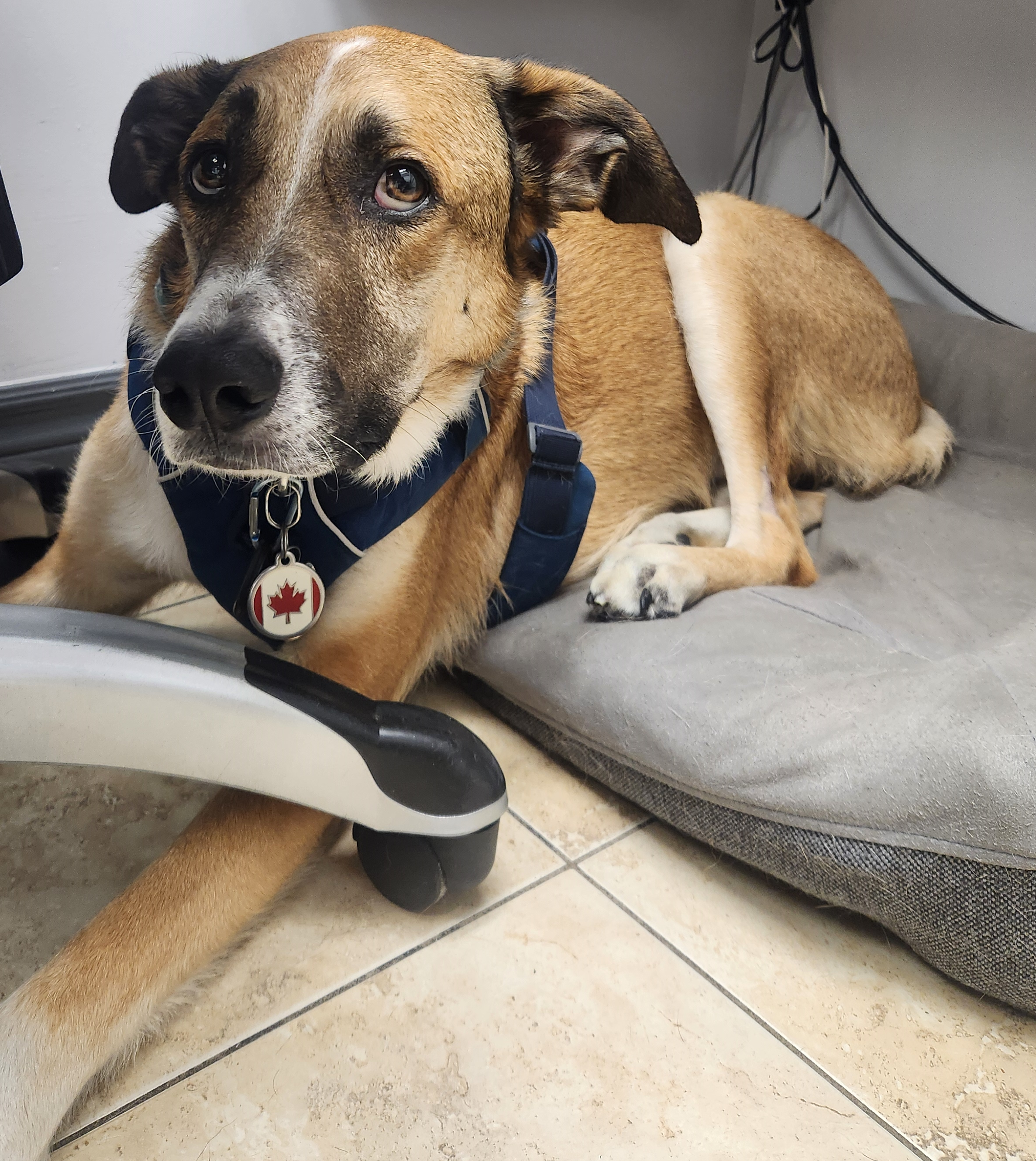Signs of Anxiety in Dogs
- Panting
- Pacing
- Trembling
- Drooling
- Barking/growling
- Lip licking
- Wide “whale” eyes
- Other signs of distress like destructive behaviours
Anxiety: Helping your dog cope with triggers
If your dog is nervous, maybe even somewhat fearful at times, it’s smart to look deeply into what may be causing these behavioral issues and then devise a plan to help your dog become more confident. While anxiety is a normal emotion, an overly anxious dog is an unhappy dog. You can change that by adding consistency and predictability to your dog’s life.
Behavioral modification is critical to managing anxiety, but the exact strategy depends on the cause of the anxiety, as well as any other behavioral issues that are present.
For example, if you own multiple dogs and one starts to exhibit resource guarding by preventing other pets from approaching you, then you could start by keeping the animals separate and giving them each equal one-on-one time with you. Gradually, over time, you can start doing some activities with the dogs together again.
If your dog has separation anxiety, you can gradually desensitize them to being left alone. Start by first just walking out of the room and immediately coming back; then gradually increase the amount of time that you are out of sight.
Dogs exhibiting frequent anxious behavior should us as soon as possible. Pain, itching, illness, discomfort can all lower a dog’s threshold for anxiety and should be ruled out.
Anti-anxiety nutraceuticals have their place in reducing the level of anxiety dogs can experience while training your dog with behavioural modification.
Adaptil and other pheromones
The pheromone released in Adaptil is identical in nature to the Dog Appeasing Pheromone (DAP) secreted by a mother dog from 3-5 days after the puppy’s birth to provide reassurance to the puppies. Research has demonstrated that the reassuring properties of DAP are still effective in adulthood.
Calming Care
Calming Care is a probiotic used daily longterm that contains the bacteria BL999 – Bifidobacterium longum – which Purina found has a significant effect on anxious behaviours in both dogs and cats. Dogs had demonstrated improvement in displaying anxious behaviours such as excessive vocalization, jumping, pacing, and spinning. They also maintain positive cardiac activity during stressful events, and their cortisol doesn’t raise as high.
CBD
Many dog owners have found that CBD also helps with anxiety. In a Cornell study, dogs were given CBD chews prior to a stressful event, and 83% showed a decrease in stress or anxiety-related behaviors. However, more research with different CBD products and dosages is necessary to understand how to effectively treat dogs with anxiety.
Studies done with CBD have shown that it can affect liver enzymes, specifically cytochrome P450s and alkaline phosphatase (ALP), both of which are involved in the metabolism of many medications.
This means that there is a risk that using CBD in combination with other drugs will cause them to interact and change how the medications perform. It may also affect the prescribed or recommended dosages. So, while you may be able to pick up CBD treats at the store, please check with us before giving them to your dog and we can add a note to their medical file that they are on CBD. We only recommend purchasing approved products by your veterinarian, and do not recommend CBD products made with hemp.
The most common side effects noted by pet parents were an increase in appetite and sedation.
Composure Pro
Composure Pro Chews is a Pro Line Veterinarian Strength Formula recommended for dogs and cats in need of anxiety relief. It features a blend of ingredients such as thiamine and tryptophan that work together to support brain function and promote calm behaviour during stressful periods. Double the dose can be given and is recommended until the desired affect has been reached.
Thundershirts
Like swaddling an infant or an adult using a weighted blanket, Thundershirts provide gentle compression throughout the body. Research on both humans and animals suggests that this type of pressure can release a calming hormone like oxytocin or endorphins. While there is little data confirming efficacy, there is a lot of anecdotal evidence that gentle compression helps some dogs.
If none of the above work, an appointment with your veterinarian and a potential referral to a veterinary trained behaviourist is recommended.


